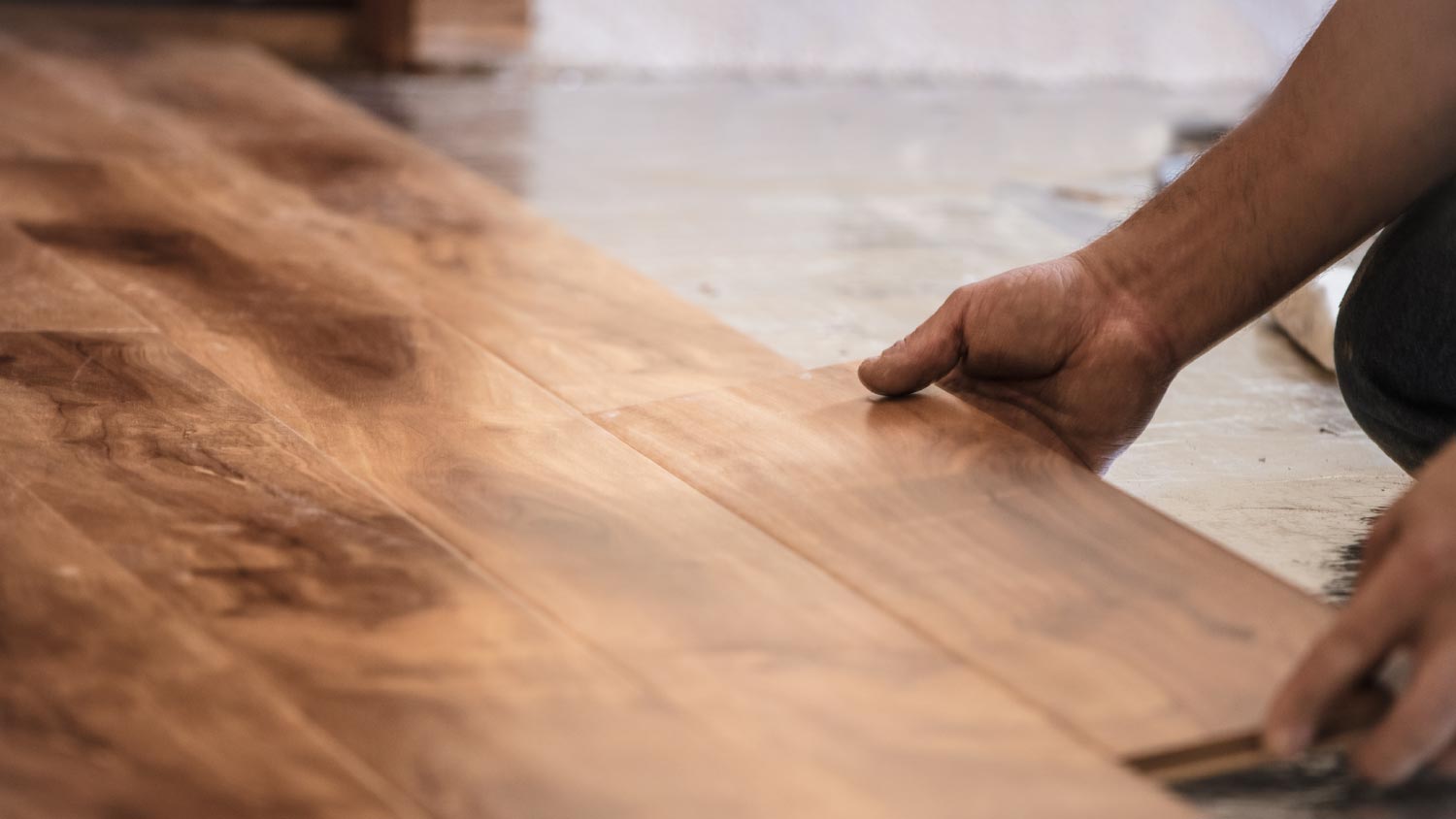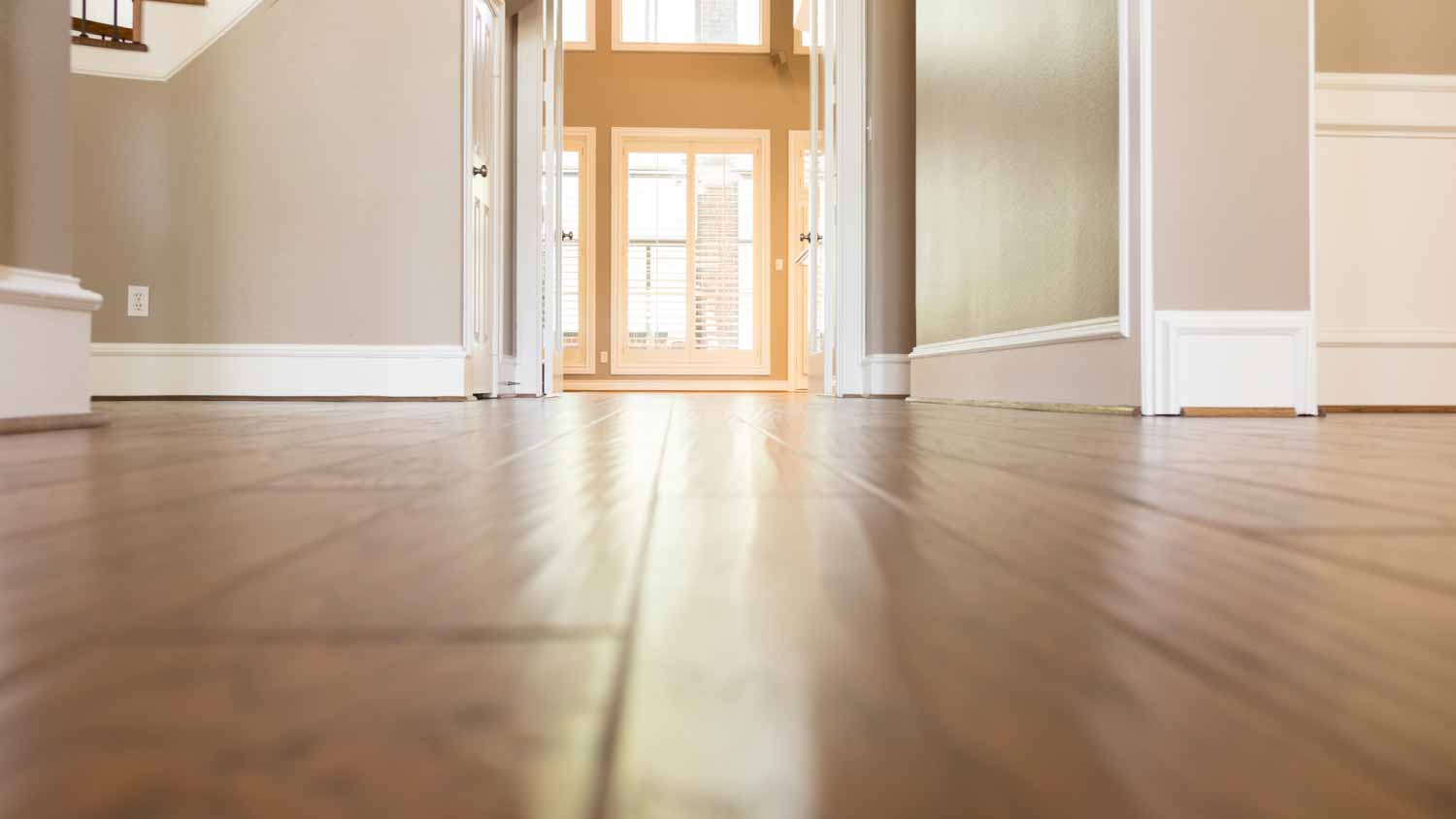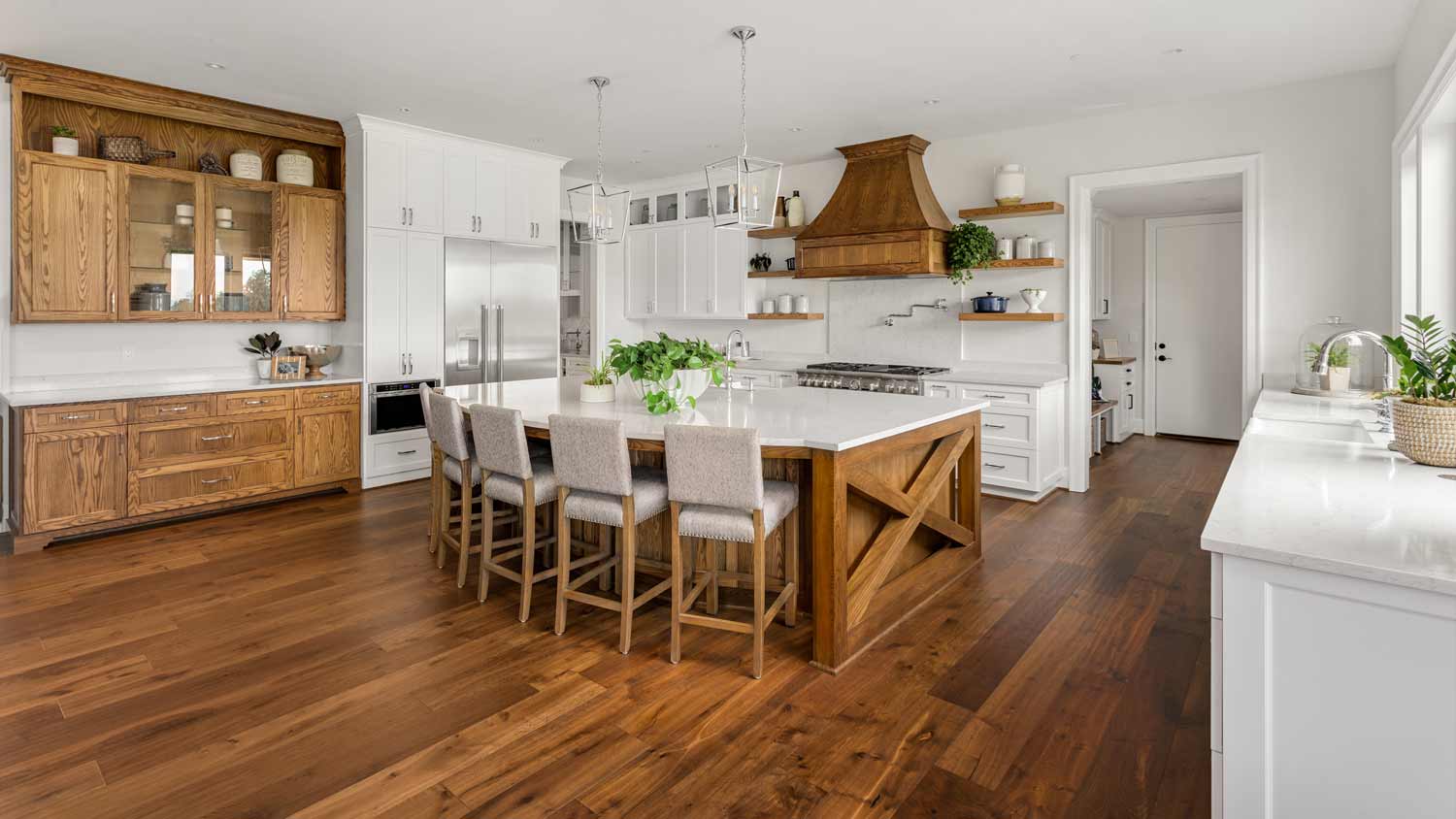
Here’s what you should expect to pay when renting an orbital, drum, vibrating, or edging floor sander—as well as where you can rent them and what else to know.
If you want the rich beauty of a natural wood floor, consider hiring a pro for your dream results


Hardwood installation materials cost $6–$25 per square foot.
Hardwood installation labor only costs $3–6 per square foot.
Hardwood flooring is challenging to install and requires special tools.
Common DIY problems include improper tools and technique.
Pro hardwood contractors have the experience to ensure good results.
Hardwood flooring is an investment that boosts your home’s value and enriches the aesthetic of your home. If you’re wondering whether to complete the project as a DIY or hire a pro instead, you may want to first think about the complex process of installing, sanding, and finishing hardwood floors. This guide breaks down the details of DIY hardwood flooring installation to help you decide the best way to get the results you want.
The cost to install hardwood floors includes both material costs and the price of professional labor. Materials make up most of the cost since wood floor planks tend to cost $6 to $25 per square foot on average. You’ll typically only pay $3 to $6 per square foot for the installation labor.
Here are some important factors to plan for when deciding how to install your wood floors.
When you hire local hardwood floor installers, they bring the tools and materials needed to ensure accurate measurements, precise cuts, and safety. These materials and supplies include:
Drill and bits
Hammer, punches, and nail setters
Mallet and tapping block
Tape measure, chalk line, and level
Staple gun
Wood putty
Vapor barrier paper
Safety mask or glasses
Work gloves
Knee pads
Hardwood floor installation also requires specific power equipment that many homeowners will need to purchase or rent if they plan to DIY. These include a pneumatic nail gun and finishing nails—costing $200 to $400—a circular or miter saw, jigsaw, and drum sander.
Expect hardwood installation to take several full days. The project usually takes one to four days to complete, with each day consisting of eight hours of work.
Solid hardwood flooring is difficult to install compared to most flooring types, and tools like the flooring nailer and drum floor sander require quite a bit of expertise to handle well. A DIY wood floor installation process consists of the following main steps:
Preparation of the subfloor and perimeter planks
Countersink nails on the first row of planks with a nail punch
Fit and lock the remaining planks in a staggered pattern
Attach the flooring with the flooring nailer
Sand and finish the floor with a drum floor sander
Install transitions, baseboards, and molding

Wood flooring installation is a relatively complex project, and achieving good results can be challenging without proper training and experience. Homeowners attempting a DIY installation for the first time often make some rookie errors that may impact the look and performance of their new floors. Here are some common problems with DIY hardwood flooring installation:
Using lower-quality tools than the pros
Not purchasing extra flooring material
Improper sanding technique
Applying low-quality finish in thick layers
Hardwood flooring installation requires specialized tools. Even if you own the right equipment, if it isn’t professional-grade, it may not be able to handle hardwood flooring. For example, anything but a professional-grade miter saw may be damaged by certain solid hardwood species.
Renting professional-grade equipment can significantly raise your DIY costs. While your average miter saw rental costs about $120 per week, expect to pay up to $200 per week for a heavy-duty saw that can better handle solid hardwood floor planks.
Account for possible measuring or cutting errors when ordering flooring material. In addition, materials for retail purchase at local home improvement stores may also be in varied or short supply—contractors typically have more sources for bulk ordering for projects.
The sanding machines you can rent at home improvement or building supply stores may not be the same quality as those used by the pros, and the difference in your results will be noticeable. Improper sanding can lead to blotchiness in your finish and dips or marks on your floor.
Finish must be properly applied in layers that aren’t too thick, or they won’t dry as quickly or as evenly as they’re meant to. This, along with the use of low-quality finish products, can lead to coagulation that will ruin the smooth surface of your finished floors.
DIY hardwood flooring installation is possible, but hiring a hardwood flooring contractor can help ensure proper hardwood flooring installation the first time. Pros install new floors frequently, and they have the specialized tools to efficiently remove, install, and finish flooring. Plus, they have experience with common complications, such as moisture-wicking from concrete.
DIYers should only attempt a hardwood flooring installation if they have enough time, patience, and experience to take on each step. If budget is a concern, keep in mind that most hardwood flooring installation costs come from materials, not professional labor.
From average costs to expert advice, get all the answers you need to get your job done.

Here’s what you should expect to pay when renting an orbital, drum, vibrating, or edging floor sander—as well as where you can rent them and what else to know.

Both materials and labor determine hardwood floor installation costs. This guide breaks down all the prices you need to know before starting your new flooring project.

It’s impossible to keep floors damage-free over the years. Thankfully, the cost to refinish hardwood floors is far less than the price tag to replace them altogether.

Before repairing or partially replacing flooring, make sure to discuss these hardwood floor repair questions with a pro.

Your new floor installation seems off, but you don't know for sure. Here are six signs of a bad hardwood flooring installation to look out for.

Struggling to narrow down your project timeline when deciding whether to paint or refinish floors first? Here's how to figure out your next steps.